The quality of travel marketing can greatly affect the overall success of businesses operating in the travel industry, including hotels, airlines, and OTAs. In particular, companies must use the right travel marketing strategies and keep up to date with the latest trends. With this in mind, in this article, you will find some of the most important travel marketing tips for 2025 to help you improve your performance and results.
Table of Contents
- What Is Travel Marketing?
- Why Is Travel Marketing Important?
- 19 Travel Marketing Tips to Boost Your Results
- 1. Personalization Marketing
- 2. Email Travel Marketing Strategies
- 3. Virtual Reality Marketing
- 4. Augmented Reality Marketing
- 5. AI Chatbots in Travel Marketing
- 6. Voice Search
- 7. Customer Experience Marketing
- 8. Artificial Intelligence Marketing
- 9. Using ChatGPT for Travel Marketing
- 10. Metaverse in Travel: How to Use the Metaverse for Travel Marketing
- 11. NFTs as a Great Tool for Travel Marketing
- 12. Influencer Marketing
- 13. Content Marketing
- 14. User-Generated Content
- 15. Review Marketing
- 16. Remarketing
- 17. Social Media Travel Marketing
- 18. User-Generated Content
- 19. Travel Marketing Solutions Without Cookies
- Why Connecting To Travel Agencies Improves Bookings
- Want to Learn More About Travel Marketing?
What Is Travel Marketing?
Travel marketing is the collective term for marketing strategies used within the travel industry. This includes strategies used by hotels and resorts, the airline industry, the restaurant industry, travel agents, and more. This marketing promotes travel business and increases bookings, purchases, or other custom forms. Many of these travel marketing strategies are now carried out online via the company website, social media, email, third-party websites, and various other channels.
Why Is Travel Marketing Important?
The travel industry is extremely competitive, with many businesses competing for the same customer base. As a result, you need to stand out from rivals, attract attention, and promote your unique qualities and attributes.
Several effective travel marketing strategies can assist businesses with this objective. Furthermore, travel marketing can also help to engage customers, generate customer loyalty, and offer incentives for customers to use your travel industry services rather than the services of your competitors.
19 Travel Marketing Tips to Boost Your Results
While travel marketing plays a vital role in modern-day business success, it is equally important to keep up to date with the latest travel marketing strategies and to create a varied marketing mix. Below, you will find 19 travel marketing tips to assist you with this and help you generate improved results.
1. Personalization Marketing
One of the best travel marketing tips is prioritizing personalization, as customers want to be viewed as individuals rather than as part of a collective. The idea behind personalization marketing is to deliver more tailored marketing content, allowing you to communicate with customers on more of a one-to-one basis.
Personalization marketing relies heavily on data collection. Common examples include personalized marketing emails, tailored recommendations, personalized SMS messages, and various types of social media marketing.
Video: Personalization Marketing Explained by Dell
In the article “Ways Personalization Marketing Can Benefit the Travel Industry,” you can read more detailed information about personalization marketing within travel.
2. Email Travel Marketing Strategies
Travel marketing strategies are becoming increasingly diverse, but it is important to remember that email remains a useful and effective marketing tool. This can include sending a regular newsletter to subscribers, promoting new products or services, or sending emails to customers who have already booked.
According to The ROI of Email Marketing Report by Litmus, email marketing has a high ROI for every $1 spent, marketers receive $36 in return. The emails you send can be especially valuable for highlighting special deals and discounts or sending reminders. You can also send emails to provide valuable information to travelers before their journey. This might include safety information, travel advice, recommendations, important contacts, and other useful tips or suggestions.
3. Virtual Reality Marketing
Put simply, virtual reality marketing is any marketing that is delivered using virtual reality technology. Virtual reality content consists of a 3D environment, which can be explored using a specialist headset. The VR content could be 360 images, virtual reality videos, or interactive VR games.
This is an increasingly popular form of travel marketing used by various industry sectors. For instance, hotels use VR tours to showcase their hotel rooms, while travel agents offer VR videos of tourist attractions.
Video: Up in the Air: a Balloon Safari Experience (360 VR Video)
In the article “Benefits of Virtual Reality Marketing for The Travel Industry,” you will find more information about VR marketing and 5 advantages of using virtual reality to increase sales.
4. Augmented Reality Marketing
Augmented reality is similar to virtual reality, but rather than 3D environments, it is concerned with information overlays. This is typically achieved through a smartphone and an app, which then overlay graphics, text, or other content over the real-world environment when viewed through the phone. According to the Augmented Reality (AR) in Travel and Tourism – Thematic Research by Global Data, the augmented reality market is expected to grow at a CAGR of 38% in the period of 2021-2030.
Travel companies can use this to enhance real-world settings. For instance, a review app might display customer reviews for a restaurant when a phone is pointed at the building. Some hotels have also made innovative use of AR, providing wall maps within rooms and a companion app that overlays additional information onto the map.
Video: Hôtel des Arts Saigon Augmented Reality Application Tutorial
In the article “How Augmented Reality is Revolutionizing the Travel Industry,” you get a closer look at augmented reality’s impact on the travel industry.
5. AI Chatbots in Travel Marketing
An AI chatbot is a software solution, powered by artificial intelligence, which can simulate human communication. It can be used to automatically respond to questions, requests or queries from customers. The use of AI chatbots is becoming increasingly valuable in an age where automation is providing efficiency advantages. Modern customers also expect rapid responses to communication and AI chatbots can provide this.
For travel marketing, AI chatbots can ask questions and draw user attention to products or services. Chatbots can be integrated into booking engines too, upselling, cross selling and providing tailored recommendations.
6. Voice Search
Voice search is another emerging technology marketers are utilizing, capitalizing on the popularity of smart home hubs from the likes of Google and Amazon, as well as smartphone apps. A growing number of customers are turning to these devices to make hotel, flight, and transport bookings using online travel agencies.
In addition to offering this service, marketers can optimize web content to capitalize on voice searches. Furthermore, hotels increasingly use smart hubs within their hotel rooms, improving the customer experience.
Video: Example Voice Search
In the article “How Can Voice Search Benefit the Travel Industry?” you will learn more about voice control and how it can help the travel industry.
7. Customer Experience Marketing
One of the best travel marketing tips to remember is that most customers are not paying for products or services; they are paying for experiences. This principle guides the concept of customer experience marketing: improving the customer experience and exceeding customer expectations.
Many hotel chains have embraced this, offering smart room controls for air conditioning and heating and smart hubs for ordering room service. Airlines also often compete on this basis, with in-flight entertainment being one example.
Video: Example Customer Experience
In the article “Ways to Improve Customer Experience in the Travel Industry,” you will find eight of the most effective ways for those in the travel industry to improve customer experience for customers.
8. Artificial Intelligence Marketing
Artificial intelligence can enhance travel marketing strategies in many interesting ways. For instance, machine learning can look into the real web searches carried out, allowing you to create much more relevant adverts and web content, which delivers what real users are looking for.
Furthermore, customer service is one of the biggest areas where businesses compete, and AI-powered chatbots can significantly improve response times and offer 24/7 service, even when staff are unavailable.
Video: How Kayak Is Using AI for Travel Planning
In the article “How Artificial Intelligence is Changing the Travel Industry,” you will learn the uses and benefits of artificial intelligence and explain how it is changing how travel companies operate.
9. Using ChatGPT for Travel Marketing
ChatGPT is a chatbot powered by artificial intelligence, which can be used in a number of ways that could assist with your travel marketing strategy. For instance, ChatGPT could be deployed to provide rapid, human-like responses to website users, and it can be configured to push marketing messages and assist with bookings.
However, ChatGPT can also be used to create marketing content. By entering the right prompts, you can use ChatGPT to create website articles, blog posts, social media posts, newsletters, and other types of marketing content. Alternatively, you can use ChatGPT to generate a list of possible titles for your marketing content or generate a basic article that can then inspire your blog posts or articles.
For more information about ChatGPT use in travel marketing, read “ChatGPT Travel Guide: How the Travel Industry Can Benefit!”
Table: Examples of Using ChatGPT in Travel Marketing
10. Metaverse in Travel: How to Use the Metaverse for Travel Marketing
The metaverse uses virtual reality, augmented reality, blockchain technology, gamification elements, and social media features to create an immersive virtual world. This technology can be used within travel marketing, allowing customers to understand what a destination or hotel is like before they commit to a booking.
In the article “Metaverse Travel: How the Metaverse Will Change the Travel Industry“, you can learn more about how the metaverse works and how it can be implemented to inspire and attract more bookings.
11. NFTs as a Great Tool for Travel Marketing
Non-fungible tokens, or NFTs, are one of the emerging technology trends taking the field of travel marketing by storm. NFTs can be used to partner with digital artists for marketing projects or to power customer loyalty schemes that reward repeat business. Many top brands already use NFTs, including Marriott and AirBaltic.
In the “NFT Travel: Learn About NFT Technology in the Travel Industry“ article, you can learn more about the various exciting ways that non-fungible tokens can be used for travel marketing.
12. Influencer Marketing
Influencer marketing is the practice of marketing to customers through influential individuals who have an existing following on social media sites like Instagram and YouTube. It is similar to endorsement marketing in that their audience trusts them, so they are more likely to trust the marketing content they share.
Images and videos are ideal for this, allowing the influencer’s audience to see their travel experience. Businesses may reach out to influencers that influence a specific demographic to target them.
Video: Example Travel Influencer
13. Content Marketing
Content marketing is creating online content, such as blog posts, videos, infographics, podcasts, and e-books, to promote your brand. The travel industry typically shares knowledge about facilities, properties, tourist attractions, and travel experiences.
One of the major benefits of content marketing over other travel marketing strategies is its cost-effectiveness. Indeed, it can be completely free, although sponsored content costs money in exchange for increased visibility.
Video: Webinar – 5 Steps to Revamp Your Content Strategy for Your Travel Business
14. User-Generated Content
As the name suggests, user-generated content refers to content created by web users. This would include user-generated videos, images uploaded to social media platforms, and comments on blog posts. Travel blogs, vlogs, and images uploaded to Facebook or Instagram are among the most obvious examples in the travel industry.
A restaurant can encourage customers to upload images to their website. At the same time, hotels or attractions can provide a digital photo booth at their location, automatically adding the company hashtag to every photo.
Video: How Travel Brands Like Airbnb & Crown Resorts Are Using User-Generated Content
15. Review Marketing
Customers are turning to review platforms like TripAdvisor and Google to assist them with their decisions, and review marketing is about acknowledging this and managing your reputation online.
Typically, this involves managing your profiles on these platforms and ensuring you have sufficient reviews to mitigate negative ones. The main travel marketing tips in this area are to encourage customers to leave reviews through email requests and to take the time to update information and photos on each review platform.
Video: How to Manage Reviews
In the article “Tips to Manage Online Reviews,” you will learn tactics to sharpen your review management strategy.
16. Remarketing
Remarketing is another of the travel marketing techniques with the best cost-effectiveness because it is the process of marketing to people who have already interacted with your brand online. As a result, you already know they have some degree of interest.
For instance, it could be that they started to book a hotel room or looked at flights. The content you target individuals with can be tailored to show them the product they were viewing, for maximum relevancy. Remarketing can be done using Google AdWords, Facebook, and other platforms.
Video: Getting Started with Remarketing
17. Social Media Travel Marketing
Social media platforms have become one of the primary ways brands and their customers can interact online. Whether through Facebook, Instagram, X, TikTok or platforms like Reddit, social media can be used to great effect for marketing. The role of social media is crucial in the modern age, as these platforms have a huge number of users. This means travel companies have the potential to reach a large audience and engage with them in meaningful ways.
As a travel marketing tool, social media allows you to share images, videos, and links to website content. Many platforms provide paid advertising options too, allowing you to aim marketing messages at very specific demographics.
Video: What Travel Agents Should Be Posting On Social Media
18. User-Generated Content
User-generated content is content created by ordinary users of the World Wide Web, including your own customers. It can be used to great effect in travel marketing because it carries a high degree of authenticity. One of the reasons user-generated content is so valuable for travel marketing is because people are more likely to trust it. Travelers are skeptical of claims from businesses, but tend to believe their peers.
Try to make effective use of user-generated content in your travel marketing strategy. This can include photos and videos taken by travelers, customer reviews, and content posted by users on social media.
Video: The Influence of User Generated Content – A Game Changer for Travel Brands
19. Travel Marketing Solutions Without Cookies
Internet cookies are small files sent by websites and apps to a user’s device, in order to store information about user activity. Cookie-less marketing is a form of marketing based around avoiding the use of cookies. The rise of cookieless advertising coincides with increased concern about online privacy and data collection. Without deploying third-party cookies, brands need to collect user data themselves or find other advertising methods.
While this represents a significant shift in online travel marketing, it also provides some opportunities. Travelers are generally willing to share data for a better experience, so explore options like customer loyalty programs. You can also use contextual advertising to promote your brand next to relevant YouTube videos.
Why Connecting To Travel Agencies Improves Bookings
Travel agencies are among the most important distribution partners in travel marketing. Travel agencies can increase bookings by providing convenience and self-service while facilitating customers who may require advice. With this in mind, it is essential to collaborate with the right travel agency to advance your strategic goals.
In our article, “Why Connecting To Travel Agencies Improves Bookings”, you will find a list of some of the best-acknowledged and most widely-operated travel agencies to focus your efforts on.
Travel Marketing FAQs
Hotels, airlines, OTAs, and car rental companies operate in a highly competitive industry where attention and reputation can be the difference between success and failure. The travel marketing tips offered in this article will help you create a more rounded marketing strategy to boost your results.
Want to Learn More About Travel Marketing?
Marketing plays a crucial role in helping businesses to maximize bookings and revenue. It is the main way businesses can reach out to potential customers, conveying their unique selling proposition and brand values. In the following articles, you will find more essential marketing strategies and tips for the travel industry:
- Google Travel Insights: Tools & Data Trends for The Hospitality & Travel Industry
- Essential Hotel Marketing Strategies
- City Marketing Strategies to Attract More Travelers
- Destination Marketing Strategies to Attract More Visitors
- Country Marketing Strategies to Attract More Tourists
More Tips to Grow Your Business
Revfine.com is the leading knowledge platform for the hospitality and travel industry. Professionals use our insights, strategies, and actionable tips to get inspired, optimize revenue, innovate processes, and improve customer experience.Explore expert advice on management, marketing, revenue management, operations, software, and technology in our dedicated Hotel, Hospitality, and Travel & Tourism categories.
This article is written by:
Hi, I am Martijn Barten, founder of Revfine.com. With 20 years of experience in the hospitality industry, I specialize in optimizing revenue by combining revenue management with marketing strategies. I have successfully developed, implemented, and managed revenue management and marketing strategies for individual properties and multi-property portfolios.

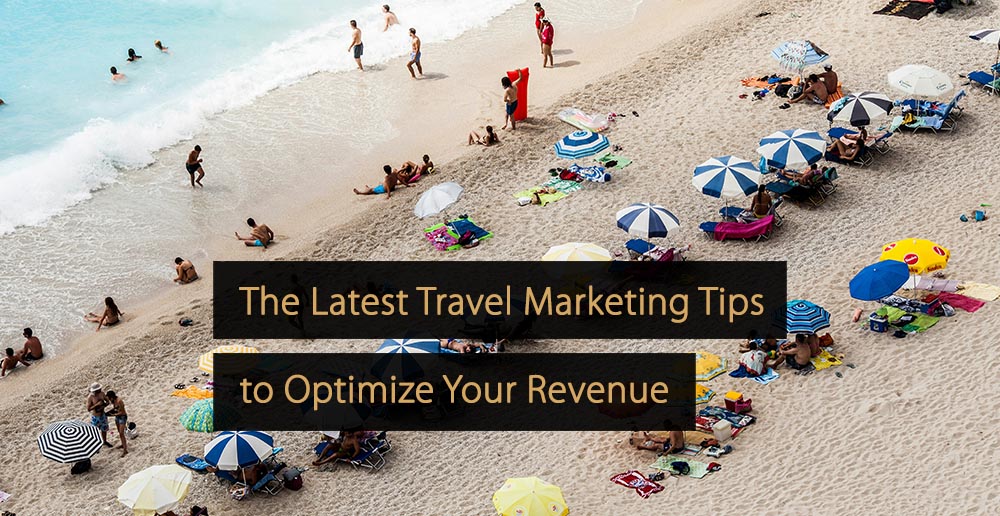
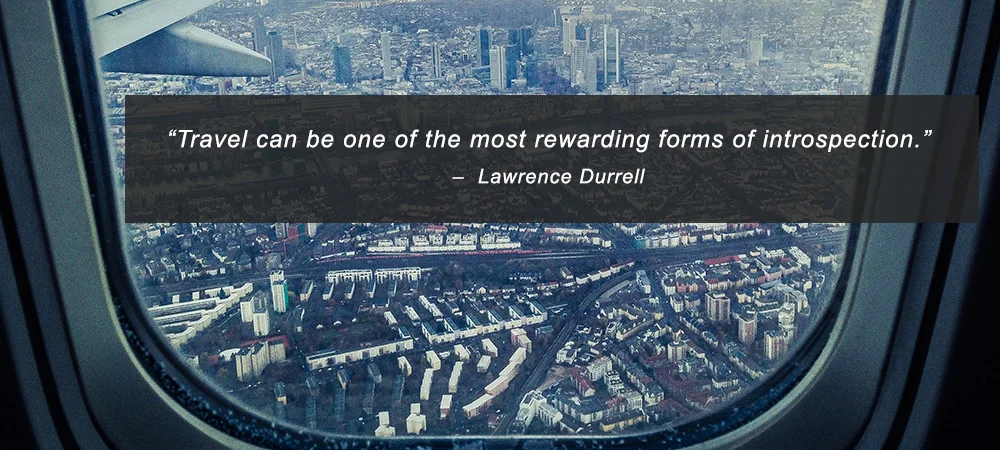



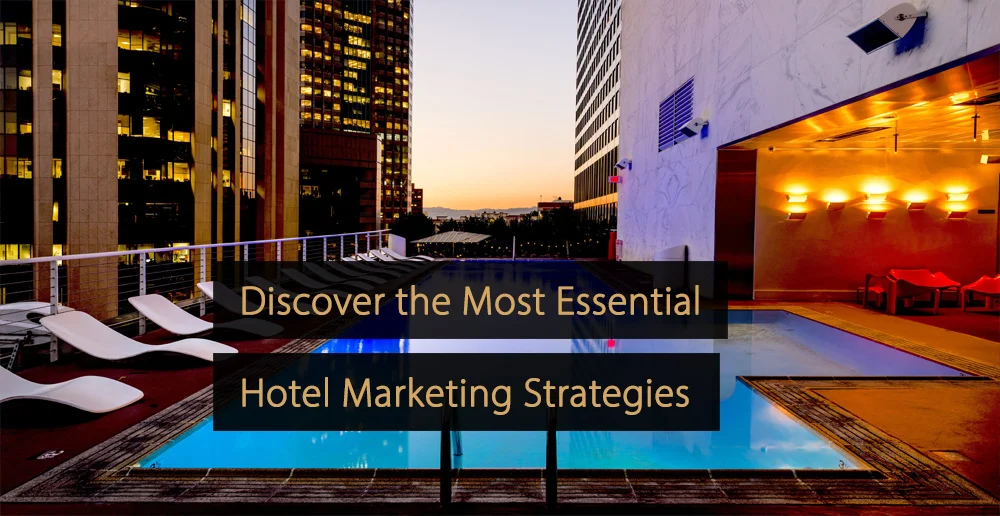

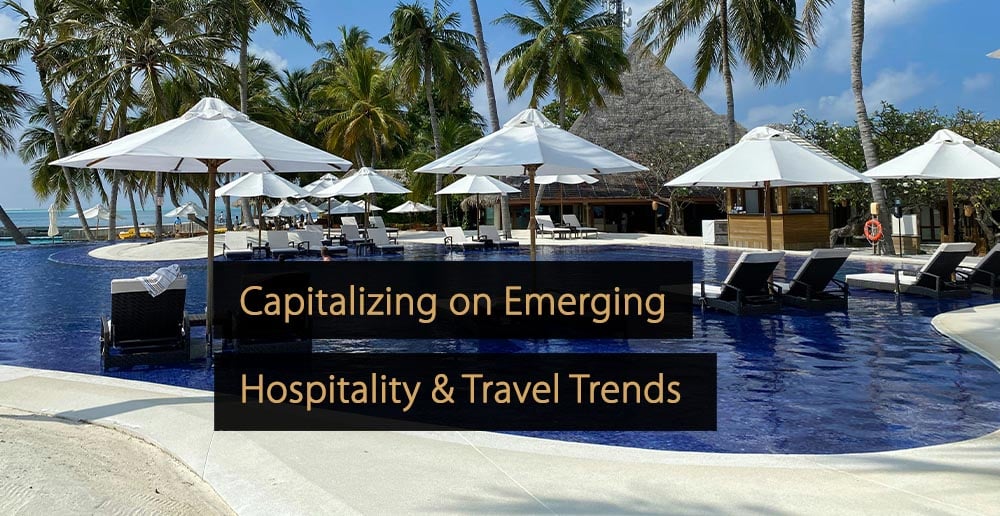
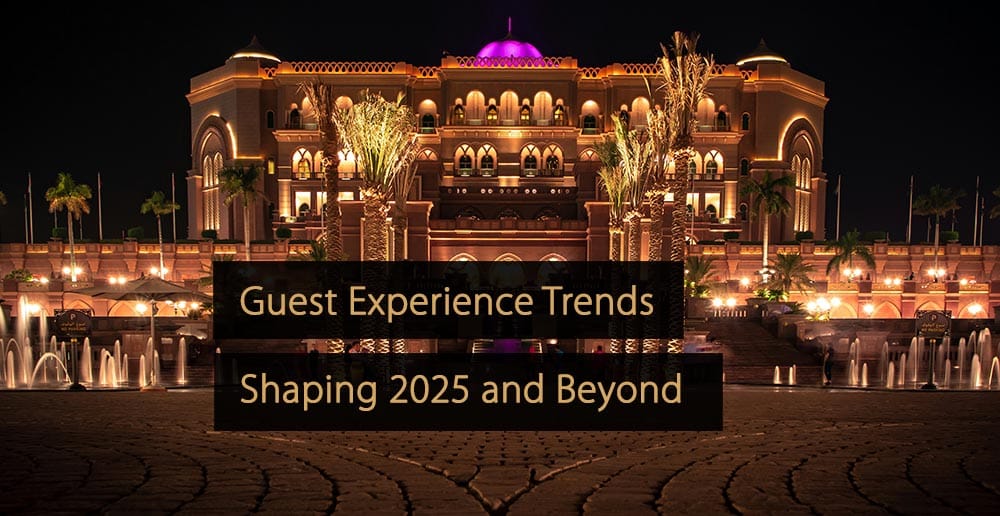
The tip which I agree with the most is virtual marketing. I personally use it and have also booked many hotels after taking a virtual tour. With travel marketing becoming a necessity these days after corona, I believe this will be one of the biggest trends. Also, regarding remarketing, I had a question. Is it possible on Facebook? A lot of my prospective customers spend a lot of time on Facebook and Instagram.
This is exactly what I was looking for, saving me a few hours of research. Thank you for sharing all your marketing tips.
A big thumbs up for all your travel marketing tips. Surely going to try these tips!
Hey, I just love your information about travel marketing. It helped me so much. keep going like this and please upload more informational blogs like this one. Thank you.
Thank you for nailing down these effective travel marketing tips! This is truly helpful, especially for small tour operators and startups.
I highly agree that connecting with online travel agencies help. Some doubt it’s worth it, considering commission fees and cancellation terms and conditions, but OTAs are gold mines to millions of travelers with high booking intent.
In addition, travel content marketing is essential, but many operators now lack the time. Writing content can be time-consuming, not to mention optimizing it for search engines like Google. But operators can save time and even gain more traffic by using helpful tools powered by AI. I hope it helps! As much as your content helps ~ more articles like this, please. Thank you!
Hello, Good Afternoon. We are looking for a digital agency for our tourism business.